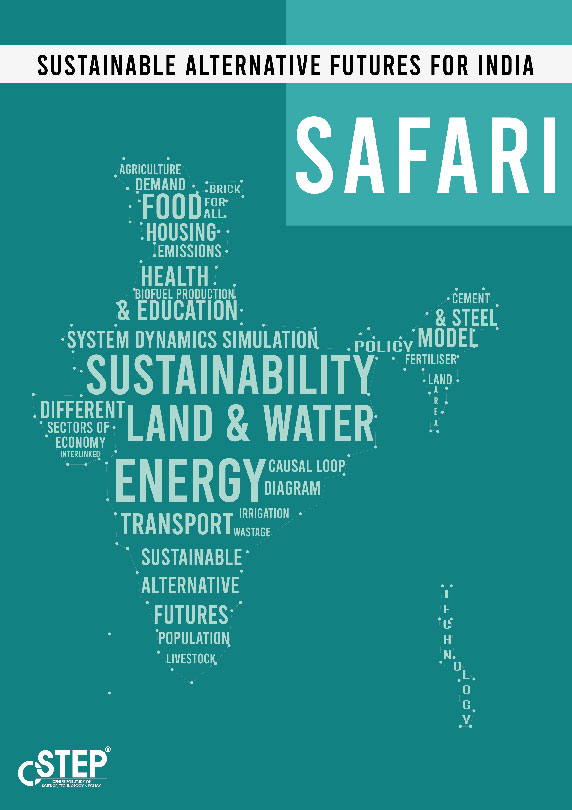Climate change mitigation involves strategies aimed at decreasing greenhouse gas emissions, promoting renewable energy sources, improving energy efficiency, and implementing sustainable practices. CSTEP focuses on building models to simulate India's future across sectors, such as transport, industries, buildings, agriculture, and forestry, to find interventions required to achieve a sustainable and secure future. Our work also involves the study of certain themes that cut across sectors (quality of life and development vs climate action, water and land demands for agriculture vs power, etc).
CSTEP's SAFARI model: Balancing development with climate action requires a good understanding of the interactions between sectors, natural resource systems, and environmental externalities. The Climate Change Mitigation at CSTEP has undertaken a modelling study with the aim to provide such an understanding and help create scenarios for low-carbon development through the use of an interactive simulation tool called Sustainable Alternative Futures for India (SAFARI). You can access the tool here.
SAFARI estimates the energy, emissions, and resources implications of achieving developmental goals such as food, housing, healthcare, education, power for all, and transport up to 2050. The user interface allows you to explore these implications as well as the trade-offs between them. Using SAFARI, you can create integrated scenarios across sectors and test out the impact of policy choices on energy, emissions, and resources. Ultimately, we hope that this tool can be used to provide insights into developing and tracking India's long-term strategy (LTS) in line with the Paris Agreement. For more information, please contact safari@cstep.in



Institutional analysis of urban transportation in Bangalore
Institutional analysis of urban transportation in Bangalore.This paper maps and explains the institutional structure of urban transportation policy in Bangalore, India. Our critique of individual agencies and methods of policy making and implementation will demonstrate how the current setup negatively affects urban transportation planning in Bangalore. We suggest about broad institutional changes that we believe would improve outcomes and service delivery.
Scenarios: Shaping India's Future
India’s future depends on how we approach three ‘mutually-reinforcing’ aspects: (i) inclusion, (ii) governance and (iii) models for efficient use of natural resources: water, land, and energy.
Quality of Life for All: A Sustainable Development Framework for India's Climate Policy - Technical Report
Quality of Life for All: A Sustainable Development Framework for India's Climate Policy
Urban Transport Planning in Bengaluru: A Polycentric Governance System
Urban Transport Planning in Bengaluru: A Polycentric Governance System
Transport
In the Transport domain, we examine policies and strategies for sustainable mobility solutions. Broad areas of work include public transport, multi-modal transport integration, low-carbon mobility, and new and emerging disruptive technologies.